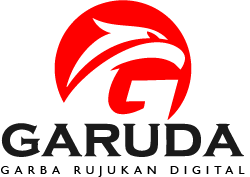IMPROVING STUDENTS’ ABILITY IN WRITING DESCRIPTIVE TEXT USING GENRE BASED APPROACH (GBA) AT THE EIGHTH GRADE STUDENTS OF SMP ISLAM TERPADU FITRAH INSANI
DOI:
https://doi.org/10.22460/eltin.v3i1.p%25pAbstrak
Based on the phenomena that students have difficulties in writing descriptive text, students could not write because the students do not have any ideas when they areasked to write. So, they need some ways which could help them in writing. The problems in writing can be solved by implementing some strategies in teaching writing. One of approach that teacher can use to help students write a good text is GBA. The main objective of this study is find out if GBA can improve students’ ability in writing descriptive text. The research method used is quantitative research, or more specifically quantitative with one group pretest-posttest design. Pretest was given before the students received treatment and posttest was given after students received the treatment. The sample is one class (VIII Al Quds) in SMP ISLAM TERPADU FITRAH INSANI and test as the instrument. Data analysis shows that the observed value of t  (9.474) is bigger than the critical value of t(2.07). GBA has a significant impact on improving students’ ability in writing descriptive text. The teacher should apply the GBA as the alternative for teaching writing descriptive text.             Keywords: Improving, Writing, Descriptive text, and Genre Based ApproachReferensi
Brown, H. Douglas. (2001). Teaching by Principles: An Interactive Approach to Language Pedagogy. Great Britain: Longman.
Crowl, Thomas K. (1996).Fundamental of Educational Reseach. New york:Brown &Benchmark.
Creswell, J. W. (2012). Educational research: Planning, conducting and evaluating quantitative and qualitative research. Boston: Pearson Education, Inc.
Field, Andy. (2009). Discovering Statistic Using SPSS third edition. California : SAGE.
Firkins, A., Forey, G., & Sengupta, S. (2007). A Genre-Based Literacy Pedagogy: Teaching Writing to Low Proficiency EFL Students. English Language Teaching Journal , 3.
Fraenkel, J. R., & Wallen, N.E. (2009). How to design and evaluate research in education seven edition. New York: McGraw-Hill Inc.
Fraenkel, J. R., Wallen, N.E., & Hyun, H.H.. (2012). How to design and evaluate research in education. New York: McGraw Hill Companies.
Gerrot, Linda., & Wignell Peter. (1995). Making Sense of Functional Grammar. Sydney: Antepodean Educational Enterprises.
Hake, R.R. (1999). Analyzing Change/Gain Scores. Dept. of Physics Indiana University. (Online). from http://www.physics.indiana.edu in 21-9-2011
Harmer, Jeremy. (1998). The Practice of English Language Teaching. New York: Cambridge University Press
Harmer, Jeremy. (2004). How to Teach Writing. England : Pearson.
Kane, Thomas. S. (2000). The Oxford Essential Guide to Writing. [Online].Available in http://en.wikipedia.org/wiki/Text_linguistics.
Kaswan, et al. (2014). Metode dan teknik penulisan karya ilmiah. Cimahi: STKIP SILIWANGI BANDUNG
Knapp, Peter., & Megan Watkins. (2005). Genre, Text, and Grammar. Sidney: University of New South Wales.
Linse, Caroline T. (2006). Practical English Language Teaching : Young Learners. NY: Mc Graw Hill
Meltzer. (2002). The relationship Between Mathematics Preparation and Conceptual Learning Gain in Physics : A Posible “Hidden Variable inDiagnostic Pretest Scoresâ€.American Journal Physics.
Nugroho, T. & Hafrizon. (2009). Introduction to Genre Based Approach. Jakarta: Ministry of National Education
Paltridge, B. 2001. Genre in the Language Learning Classroom. Michigan, University ofMichigan Press.









